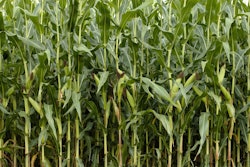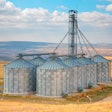
U.S. Crop Progress Update for Week Ending April 11
- Corn plantings were 4% complete for the US, up 2 points from the previous reporting week and in line with the 3% average.
- Cotton was up to 9% planted from 6% last week, and compared to 7% average.
- Sorghum plantings were 14% complete, unchanged from the previous week.
- Oats were 39% planted, which is ahead of the average at 33%.
- The winter wheat crop was 5% headed versus the 7% average.
- Winter wheat conditions are above average but below last year.
- Spring wheat plantings were 11% complete, running ahead of last year’s pace at 5% and the average at 6%.
- Barley plantings were 13% complete versus the average at 11%.
FBN’sTake OnWhat It Means:The report offered little market-moving information but a key take away is that South Dakota, Washington, and Idaho all made excellent progress in the latest week. Eyes are on US and Canadian weather as the planting season moves north. Moisture still would be welcome in much of the key-producing areas but the growing season is just underway.

Strong Increase for China’s First Quarter Imports
- China's imports of soybeans, corn and wheat were strong in the first three months of this year due to demand from the livestock sector.
- Soybean imports almost doubled in March to 7.8 million tonnes, up 82% from a year ago.
- First quarter soybean imports were 21.2 million tonnes, up 19% from 17.8 million tonnes last year.
- 6.7 million tonnes of corn arrived during the quarter, increasing more than five times from the previous year.
- Wheat imports more than doubled from a year ago to 2.9 million tonnes.
- China's weekly soybean meal inventories are 798,000 tonnes, up from 477,000 at the end of January, while bean stocks fell slightly to 4.4 million tonnes.
- Recent African swine fever outbreaks in northern China have been estimated to affect at least 20% of the region's breeding herd.
FBN’sTake OnWhat It Means:China increased soybean purchases due to good crushing margins as the market had expected elevated demand from the hog industry. However, shipments of beans that had been delayed by the slow harvest in Brazil have slowly started to arrive. There are concerns now that large arrivals of beans and weaker demand from hog feeders could pressure crush margins.
FBN Market Advisoryservices are offered by FBN BR LLC, dba FBN Brokerage, FBN BR and FBN Market Advisory (NFA ID: 0508695)
The risk of trading futures and options can be substantial and may not be suitable for all investors. Past performance is not necessarily indicative of future results.
This is not an offer or solicitation in any jurisdiction where we are not authorized to do business or where such offer or solicitation would be contrary to the local laws and regulations of that jurisdiction, including, but not limited to, persons residing in Australia and Canada.



















